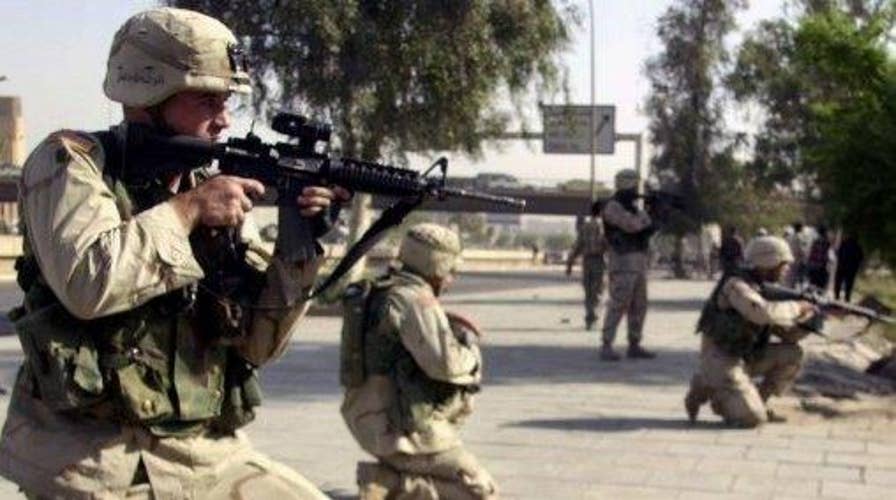U.S.-backed Iraqi and Kurdish forces are making “solid progress” but are now meeting “heavy resistance,” outside Mosul from ISIS, Pentagon spokesman Capt. Jeff Davis told reporters Monday, predicting that “it’s going to get heavier” as allied forces push into the city.
MOSUL FIGHT COULD SEND WAVE OF TERRORISTS HOME TO EUROPE, OFFICIALS WARN
Davis said there were indications ISIS was forcing some of its administrative and support personnel inside Mosul to become fighters. Late last week, U.S. military officials had characterized ISIS resistance as “moderate.”
ISIS has launched attacks in Sinjar in northern Iraq and Rutba out west in order to disrupt the Mosul campaign.
Until now, most of the fighting has been in largely uninhabited towns and villages, but Iraqi special forces found more than 70 civilians sheltering in Tob Zawa. They will certainly encounter many more civilians as they get closer to Mosul, still home to more than 1 million people.
EXCLUSIVE: INSIDE ISIS' EXTENSIVE TUNNEL SYSTEM
Davis said ISIS poured oil in the sulfur mine that continues to burn south of Mosul, near U.S. and Iraqi troops in Qayyarah. “It is toxic,” Davis said, but so far no injuries have been reported.
U.S. soldiers have put on gas masks to protect themselves from the burning oil and sulfur at the U.S. base 40 miles south of Mosul, which has been affected by the smoke. Davis said Iraqi forces controlled the area where the fire was burning, but they had not yet extinguished the toxic brew of chemicals.
Over the weekend, Defense Secretary Ash Carter visited both Ankara and Baghdad. In Turkey, Carter said Turkey would participate in anti-ISIS efforts, but Iraq’s prime minister had a different opinion, saying Turkey has not been invited to participate.
Turkey has close to 500 troops outside Mosul at a camp to the northeast where it is training Sunni tribal fighters and, according to some reports, firing artillery into Mosul. Davis could not confirm those reports of Turkish artillery fire.
The Shite-dominated Baghdad government has called the Turkish troops unwelcomed guests in Iraq.
“We are encouraging both sides to talk,” Davis said. He declined to offer specifics.
The U.S. military has seen nearly 5,000 people leave Mosul since the operation began last week. When asked if some of the people leaving Mosul were ISIS, Davis said, “some of them might be.”
ISIS still controls a large area west of Mosul, including a road that extends nearly 50 miles to Tal Afar, which remains firmly in ISIS control.
Despite the heavy fighting ahead, Davis confidently predicted that ISIS would be pushed out of Iraq’s second-largest city eventually, but declined to offer a timeline.
“Mosul will fall,” he said.
Fox News' Lucas Tomlinson and The Associated Press contributed to this report.








































